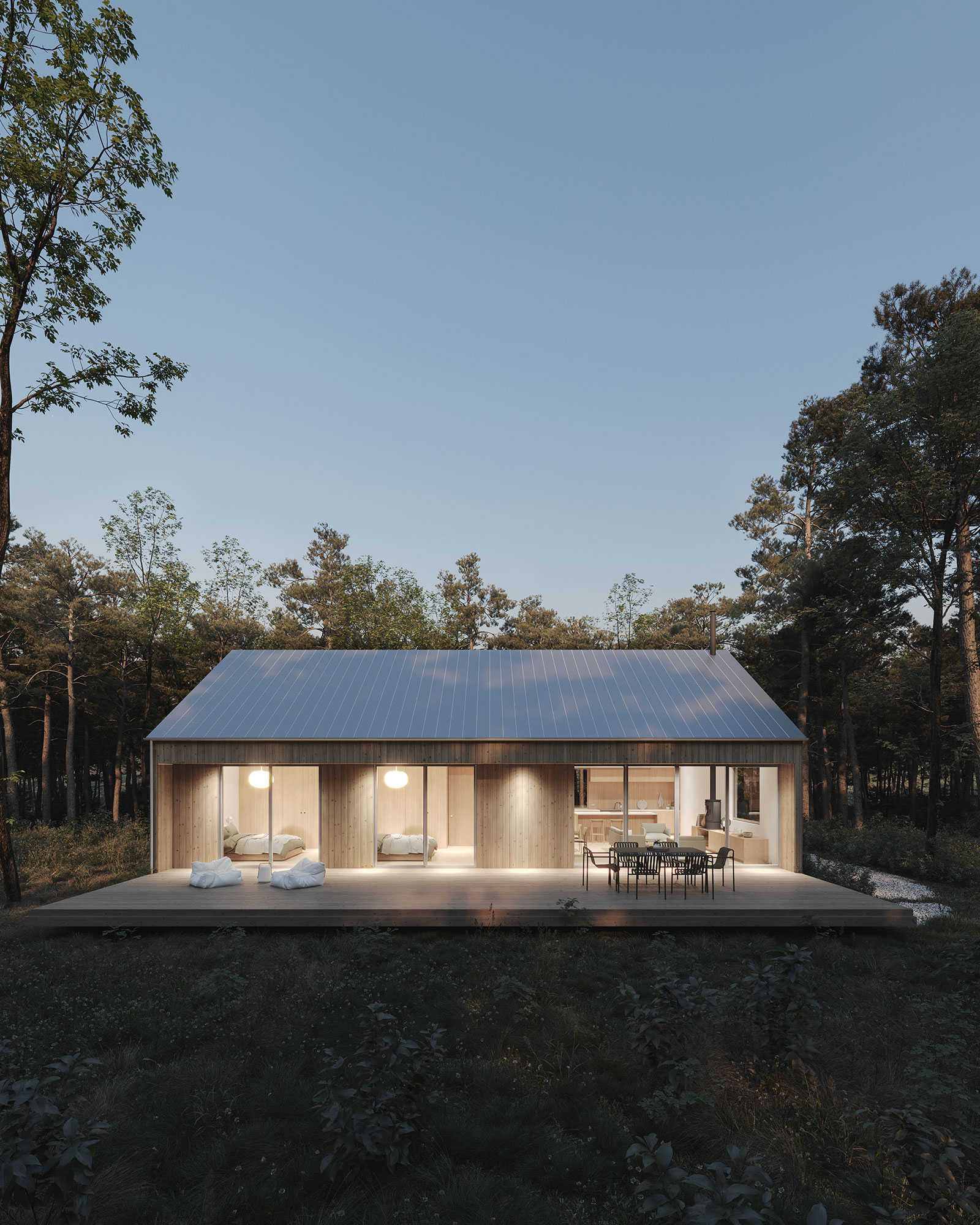If it wasn’t for WeWork’s failed IPO, Mike Romanowicz probably wouldn’t be building a proptech business right now. The entrepreneur left his position as director of product management and strategic partnerships at the famous co-working company in January.
At the time, Romanowicz detailed that construction specs on small homes — that he had begun as a side hustle — were landing a couple thousand dollars in revenue per month. He doubled down on his idea by investing $10,000 of his own money — which he used to relaunch the business under the name Den.
Den, which launched in July 2020, announced today that it has raised $3 million in venture capital in a round co-led by Gutter Capital and Crossbeam Venture Partners. It is far less capital than some of Den’s largest competitors have raised, including but not limited to Atmos, which has raised nearly $20 million in funding; Homebound, which has raised around $148 million; and Welcome, which has raised nearly $35 million.
Yet, Den’s founder is confident that their approach — and lean capital strategy — will help them win. While many proptech businesses require massive capital intake to construct physical homes, Den’s main product is a digital platform built around a more refined design and construction process. What that means is that a customer can come to Den for help with all the stages of homebuilding, from finding a design to picking the right land. Think less construction, and more end-to-end project management.
From his view, there are two main categories of how housing is delivered in the United States: custom housing, where an individual customizes every single dimension of their home, or speculative housing, a turnkey house constructed by developers with the goal of someone buying or renting the location in the future. The latter — a fully executed home — requires a different level of capitalization, he says, and the former is, well, incredibly expensive.
Den, meanwhile, wants to offer a home that is well-designed with crystal-clear specifications, and then handhold the homeowners through the process. Romanowicz stands by the fact that very few people, even at architecture firms, don’t fully specify the dimensions of a house and allow many decisions to happen after the process has begun. “It creates a compounding effect that adds time and cost and removes your ability to accurately depict when a project is going to end,” he said. “People are constantly promoting prefabrication as a solution, but for us, we’re trying to think about airtight specifications.”

Image Credits: Den
Going back to that financing round, though, Romanowicz says that Den wants to stay asset light on purpose. The company was making revenue through digital spec plans, which he describes as a high-margin asset light product, before raising any external capital. He’s hoping the bootstrapping mentality paired with a modest first round will give the company optionality in today’s economy.
“Let’s continue to be asset light, because it’s just like a strategic advantage for us,” he said. “So our focus has been process, design, user experience, the intellectual property of the design and the technology — that means we can move faster, we don’t need to raise millions of dollars to build spec homes and sell them at market rate like some of the other folks in the category.”
Still, he didn’t deny that Den may one day get more into the procurement business. Monetization options down the road, he said, can be anything from monetizing on the sale of a property, to procurement to financing and financial services around different types of insurance from homeowners to builders. “We have a lot of problems, challenges to get through before we can even scratch that itch.”
Today, the biggest hurdle is the “operational challenge of staying focused.” Luckily, he thinks the market is ready for it.
“There’s big developing groups, state by state, that really just need a better marketing and customer acquisition engine,” he said. “And that’s what we’re here to provide.”
Ex-WeWork director raises millions for Den’s tiny home plans by Natasha Mascarenhas originally published on TechCrunch
from TechCrunch https://ift.tt/jmUEiSe
via https://ift.tt/Jma0RSd
Comments
Post a Comment